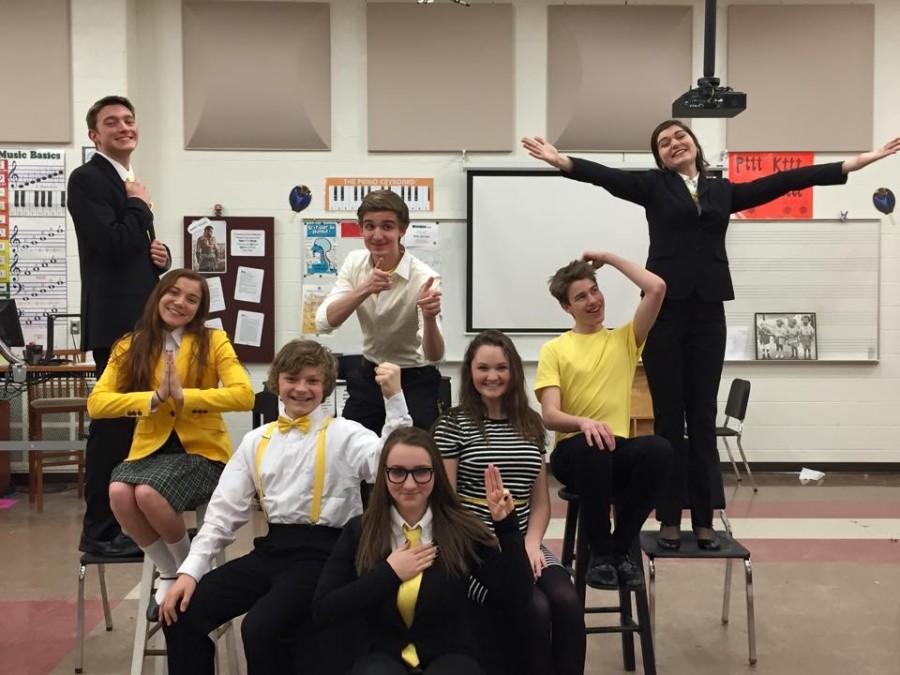Forensics: Fact from fiction
As far as extracurricular teams go, Portage Northern’s forensics team members have distinguished themselves beyond expectation, and beyond all the competition. Almost every student at Portage Northern has heard of the majorly successful and talented team and more or less comprehend the achievements they have made thus far. What most people don’t understand is the amount of dedication, support and familial atmosphere of the team.
As the forensics team wraps up their regular season and begins to send competitors to regionals, it is a time of both anticipation and reflection for the group. Michel Metzner (12) regards his first year on the team: “I really liked the experience and meeting everybody. Before [forensics], it was just really hard, I never really connected with many people. But then I found my friend group and where I was happiest. It was a really fulfilling experience.” Forensics is, without a doubt, the best way to meet people. However, it also helps students garner certain skills they will utilize for the rest of their lives. “I strongly recommend it. There’s a little bit of everything for anyone. Once you do forensics one year, you feel so much more confident in public speaking. You can get up and do a speech for class, easily, without getting any jitters,” said Casey Ruggles (11).
People are quick to assume that the forensics team doesn’t really compare to sports teams. While we aren’t running laps frequently or changing our diets to make a certain weight class, it requires an equal amount of dedication and practice. “In sport teams, you have to be here every day from 3-5 or whatever, but for forensics, if you want to be better, you have to motivate yourself. You can’t rely on other people,” said Metzner. Despite the independent nature of each member’s dedication, the chemistry between team members is also undeniable. “There were people who were willing to come and watch me in broadcasting just because I broke, and that was the sweetest thing. That’s when I really understood the sense of community that forensics gives to you, and this strong friend support system that you constantly have,” said Mandagere. As any person involved in team activities would tell you, sharing a bond with one’s team members is a critical part of achieving success, and forensics is no exception. “No matter what happens, you always have these friends wherever you go,” said Ruggles.
Forensics deserves appreciation, beyond the “stuck-up” or “mean” stigmas people place on them, which are simply stereotypes that do not hold true for the majority of the people that participate in forensics. When commenting on the stereotypical view of forensics participants, Pooja Mandagere (12) said, “They can consider themselves a little more intelligent than their other counterparts. But this is so few people. There is that stereotype, but once you’re in forensics, you just become a part of this huge group that constantly supports you, and is constantly looking out for you.” The confidence forensics participants exude is undeniable, but they’re still just high school students. No one is really completely self-assured all the time. “For storytelling, the usual stereotype is that we’re all really hyper and full of energy, and that’s not always the case,” said Ruggles.
If I could sum up forensics in one word alone, it would be passion. It is in the eyes of competitors when they realize they’ve broken to the next round. It is in the expressions of the coaches when they walk up to claim the sweepstakes trophy. It is in the screams and tears of team members when their best friend takes first. It is in the hugs between disappointed competitors. It is in the cheering of the team as one body, building each other up and getting their nerves out before their first round. Performances are an important part of forensics, but even more important is the bond within the team. “Forensics gives you this strong friend support system that you constantly have,” said Mandagere.




